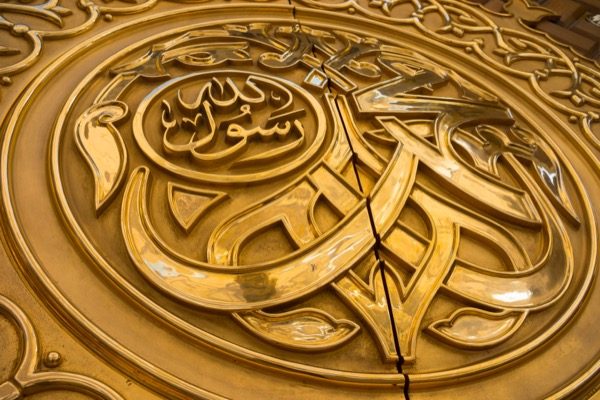
© Shutterstock
Translated by Shahzad Ahmed for The Review of Religions Translation Team.
The Review of Religions takes full responsibility for any errors in translation.
After reciting the Tashahhud, Ta‘awwuz and Surah al-Fatihah, Hazrat Mirza Bashiruddin Mahmud Ahmad (ra) stated:
There are many subjects mentioned in the Holy Qur’an which people in earlier times failed to understand and which they interpreted in such erroneous ways that it allowed for criticisms to be raised against them. However, with the progression of time, intellectual advancement and new research enabled people to develop a better understanding of these subjects that had been mentioned in the Holy Qur’an and they realised that in fact they showed the truthfulness of Islam. Similarly, there were many things in the ahadith [sayings of the Holy Prophet Muhammad (sa)] that people initially criticised, but as knowledge advanced, they realised that these ahadith were, in fact, absolutely true and correct.
Take the example of the mountains that we passed by today. The Holy Qur’an has mentioned various details about them that earlier people had failed to understand, and because of their lack of knowledge, these people were left perplexed as to what it meant. For example, one of the purposes mentioned by the Holy Qur’an for the creation of the mountains is:
وَالۡجِبَالَ اَوۡتَادًا
[And the mountains as pegs?]
This has two meanings: firstly, mountains protect the world from destruction in that they protect humankind from the devastating impacts of earthquakes. However, people failed to understand the true meaning and opponents raised the objection that the Holy Qur’an had described the mountains as “pegs” which means that just like a horse is tethered to a stake, the earth is attached to mountains. In fact, the real meaning is precisely that which has been proven today in the field of geology – that the mountains act like ‘pegs’ for the earth and thereby safeguard it from the devastation caused by earthquakes. The excess heat beneath the earth’s crust, which would have completely melted everything, erupted from the earth, forming mountains, and thus cooling the earth and creating a habitable environment for humankind to live in. In this verse, Allah the Almighty has revealed that mountains are a means of preventing the kind of earthquakes that could cause mass devastation in the world, and that an inhabitable environment was created. This has been conclusively proven through the study of geology. It used to be levelled as a criticism that, according to the Holy Qur’an, the earth has been attached to the mountains like pegs, just like a horse is tethered to a peg. However, now the world acknowledges that the mountains do, indeed, serve as pegs in the earth, as it were.
The second aspect that has been mentioned in this verse is that the provisions necessary for the survival of mankind are sustained through the mountains; that is, the mountains are a source of sustenance. In earlier times, people could not understand the relationship between sustenance and mountains. But now, with the development of irrigation systems and research into mountains it has become apparent that the snow that falls on the mountaintops melts, forming streams and rivers which then provide water to the fields and allow crops to grow. In this way, mountains are a source of sustenance for mankind.
Until they had developed canals, India experienced many dangerous droughts and thousands would perish as a result. Ever since the canals were built, this has stopped happening. However, there can be no canals without rivers, and there can be no rivers without mountains, and no rivers can flow from the mountains without snow. [This is] because there is not enough water from mountains themselves to make a river – instead, there is snow on them. Since the temperatures at mountain peaks are extremely cold, they get snow early, which gradually melts; from this water, rivers form, which then make their way into the land. Canals are then developed from them and provide water to the entire country. If the need for water could only have been fulfilled through rainfall, then the world would have been utterly destroyed. There would be so much water during the monsoon season that it would cause devastating floods, and during the summer season, there would not have been a single drop of water. However, through the mountains, water is stored because they have snowfall which remains frozen and then melts gradually, providing water and enabling the world to function. But, there was a time when people would ridicule the idea that mountains are a means of providing nourishment. Similarly, there are many truths mentioned in the ahadith which people initially criticised but whose truthfulness has now been established. The First Caliph [Hazrat Maulwi Hakim Nooruddin (ra)] narrates an incident, either his own or that of a friend, where he saw someone in a train carriage who expressed how much he detested maulwis [Muslim clerics]. When asked the reason for this, he said, ‘A maulwi led to my complete ruin. He once mentioned in his sermon that in the hadith it is mentioned that there is a mountain on the moon that the River Nile emerges from. Since I had studied geography, I was left astounded upon hearing this and thought that a religion which teaches such irrational and illogical things is not worth believing in. Hence, I left Islam and became a Christian. Later, I learnt through a priest that through the efforts of Christian missionaries, it was discovered that the source of the River Nile was a mountain called Jabl al-Qamar [The Mountain of the Moon]. I was extremely delighted upon learning this and realised that this was a proof for the truthfulness of Islam because the Holy Prophet (sa) had foretold something 1,300 years ago which the Christians had only just discovered. Thereafter, I vowed to never listen to a word a maulwi said.’
Thus, everything one observes, whether it be a mountain, or a river, or something else, can be a proof for the power of Allah the Almighty and the truthfulness of Islam, except for those who are [spiritually] blind and bereft of spiritual light. However, for our Community, God Almighty has manifested many signs and the Promised Messiah (as) has explained how the truthfulness of the teachings of the Holy Qur’an can be proven through science. The Promised Messiah (as) stated that science cannot contradict the Holy Qur’an for the Qur’an is the word of God Almighty and science is His action. And none of His actions can ever contravene His word.
In light of these principles mentioned by the Promised Messiah (as), everyone can now easily understand the Qur’an and hadith, and it is necessary for our friends to ponder over the Holy Qur’an. The youth should particularly pay attention towards this because every nation makes progress through the efforts of its youth. A nation which only seeks to benefit from the riches gathered by its predecessors and does not make any progress itself, will eventually be ruined. Muslims discovered many new sciences and fields of study but those who came after them thought that no new knowledge can be discovered and they stopped making progress and were thus destroyed. The same is true of their victories – as long as they continued to advance they were met with success, but the moment they stopped, they were destroyed. In short, whenever the youth and the next generation of a nation assume that their elders have achieved everything there was to do and there is nothing left for them, then they face ruin and destruction. It is the duty of the future generation of any nation which seeks to succeed that they make progress in every aspect and discover new knowledge, so that the nation does not remain stagnant and face ruin and destruction.
May God Almighty enable the Community to fulfil this task, elders and youth alike. May the elders increase in their knowledge and may the youth ponder and deliberate over the Book of God and the words of the Holy Prophet (sa), so that they can become the means of attaining success for themselves, the Community and the entire world. Ameen.
This sermon was delivered on 2nd August 1929 in Aru, Kashmir and originally published in Al-Fazl, 13th August 1929.
Khutbat-e-Mahmud, Vol. 21, pp. 152- 155.
ENDNOTE
- The Holy Qur’an, 78 :8




MashaAllah